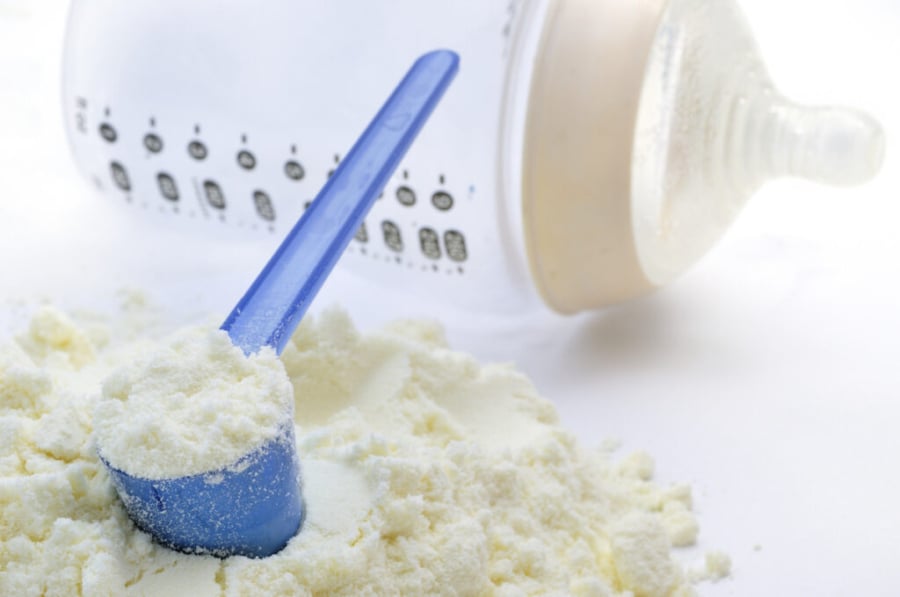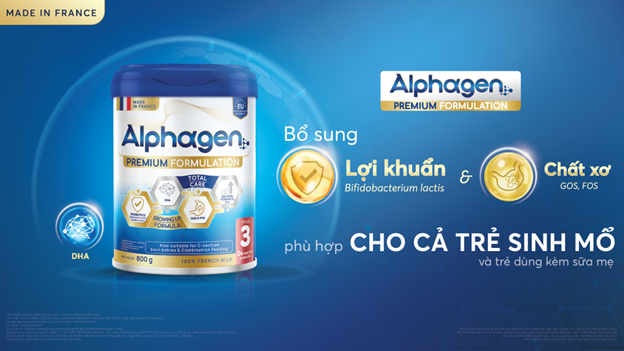The Importance of Choosing the Right Baby Formula
Breast milk is always the best source of nutrition for newborns and infants. While baby formula cannot completely replace breast milk, it is a necessary alternative when mothers cannot produce enough milk or when babies need additional nutrients. It is important to remember that no single formula is suitable for all infants. Each baby has unique digestive systems, absorption rates, and nutritional needs.

Types of Baby Formula Available in the Market
Based on Packaging:
– Powdered baby formula: The most common form, it needs to be mixed with water as per instructions.
– Ready-to-feed baby formula: Convenient and ready-to-use, perfect for travel and on-the-go feeding.
– Concentrated liquid baby formula: Less common, needs to be diluted with water before use.
Based on Ingredients:
– Cow’s milk-based formula: Easily available and nutritionally rich.
– Goat’s milk-based formula: Easier to digest and less likely to cause allergies.
– Plant-based baby formula: Suitable for babies with animal protein allergies (as advised by a pediatrician).
How to Choose the Right Baby Formula for Your Little One
Age-Appropriate Formula
– Formula for preterm or low-birth-weight babies: Look for a formula with higher calorie content and richer in protein and fats (as recommended by the American Academy of Pediatrics).
– Formula for infants 0-6 months: Use Stage 1 baby formula, designed with a nutritional profile closest to breast milk.
– Formula for babies 6-12 months: Stage 2 formula has higher protein and nutrient content to support the growth of babies who are starting solid foods.

Nutritional Composition
Prioritize digestive support. The prebiotic fibers GOS and FOS in a 9:1 ratio stimulate the growth of beneficial bacteria in the infant’s gut, reducing digestive issues, enhancing absorption, and preventing constipation. Additionally, the presence of Bifidobacterium lactis probiotics strengthens the gut’s protective barrier and lowers the risk of infections.
Immune Support: The inclusion and enhanced activity of Bifidobacterium lactis probiotics contribute to building a robust gut immune system. Furthermore, formula for infants under one year should provide vitamins A, C, E, zinc, and selenium—essential micronutrients to combat environmental pathogens.
Growth and Development: Phosphorus, calcium, vitamins D3 and K2 are crucial for strong bones and teeth, aiding in achieving healthy height and weight standards. Additionally, protid, zinc, and vitamin A promote holistic growth, encompassing both height and weight.
Brain and Vision Development: According to Dr. Nguyen Tien Dung, Head of Pediatrics at Bach Mai Hospital, the ideal formula should contain DHA and ARA in a 2:1 ratio, mirroring the composition of breast milk.
Alphagen baby formula is an exemplary choice, offering a comprehensive nutrient profile. Specifically, Alphagen provides over 170 million Bifidobacterium lactis probiotics daily, along with GOS and FOS prebiotics in a 9:1 ratio. It also includes DHA, ARA, calcium, vitamins D3, K, iron, zinc, and more, ensuring your infant receives a full spectrum of nutrients for overall development. Notably, Alphagen is suitable for babies born via C-section and those who are partially breastfed.

Origin and Affordability
Always opt for formula with a clear and trustworthy origin. Purchase baby formula from reputable retailers to avoid counterfeit or substandard products. Additionally, select a formula that aligns with your long-term financial capabilities to ensure sustained usage.
Alphagen baby formula, imported directly from France, offers exceptional quality at an affordable price for Vietnamese families. Take advantage of the special price of only VND 429,000/800g tin during August 2025 at Con Cung, Vietnam’s largest Mom and Baby retail chain.






























